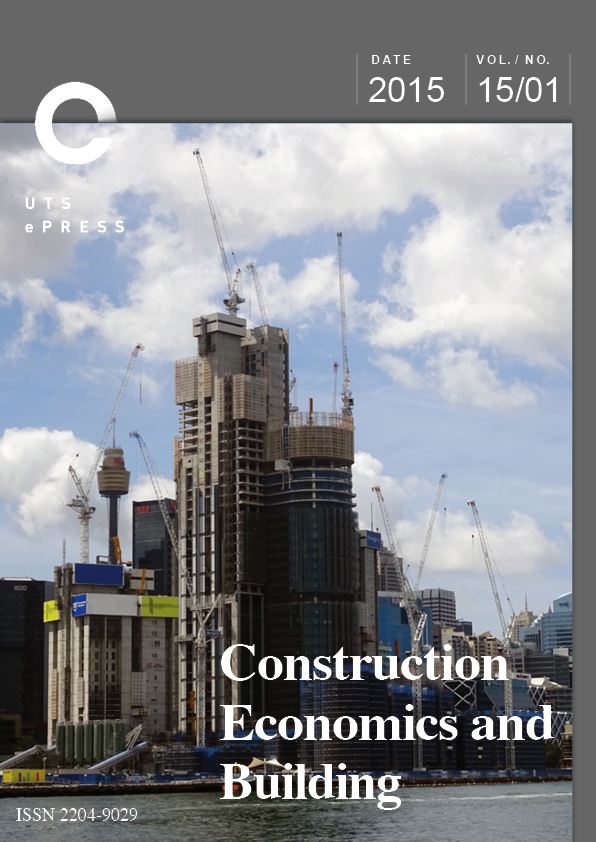Determinants of Management Innovation in the Ghanaian Construction Consulting Sector
Main Article Content
Abstract
Determinants of management innovation (MI) within the Ghanaian construction consulting sector are examined. A sample of 70 consulting firms is surveyed using self-administered questionnaires. Data are analysed using descriptive statistics and factor analysis. Findings indicate that determinants of MI were interwoven among seven principal factors viz: community and market demands; financial and business management practices; human resource policies; creativity and organizational strategies; corporate social responsibility; prevailing conditions; and competitive leverage. The study adds to the discourse on evolution of innovation within the global consulting sector generally, while providing reference for practitioners and academics in the field with respect to MI determinants more specifically. It is envisaged that practitioners who adopt these findings in the construction consultancy sector would enhance their ability to provide innovative services to clients. Study recommendations include that future research should explore how innovation is diffused within consulting enterprises’ value chains.
Paper Type: Research article
Article Details
Section
Authors who publish with this journal agree to the following terms:
a) Authors retain copyright and grant the journal right of first publication with the work simultaneously licensed under a Creative Commons Attribution License that allows others to share and adapt the work with an acknowledgement of the work's authorship and initial publication in this journal.
b) Authors are able to enter into separate, additional contractual arrangements for the non-exclusive distribution of the journal's published version of the work (e.g., post it to an institutional repository or publish it in a book), with an acknowledgement of its initial publication in this journal.
c) Authors are permitted and encouraged to post their work online (e.g., in institutional repositories or on their website) prior to and during the submission process, as it can lead to productive exchanges, as well as earlier and greater citation of published work (See The Open Access Citation Advantage Service). Where authors include such a work in an institutional repository or on their website (ie. a copy of a work which has been published in a UTS ePRESS journal, or a pre-print or post-print version of that work), we request that they include a statement that acknowledges the UTS ePRESS publication including the name of the journal, the volume number and a web-link to the journal item.
d) Authors should be aware that the Creative Commons Attribution (CC-BY) License permits readers to share (copy and redistribute the work in any medium or format) and adapt (remix, transform, and build upon the work) for any purpose, even commercially, provided they also give appropriate credit to the work, provide a link to the license, and indicate if changes were made. They may do these things in any reasonable manner, but not in any way that suggests you or your publisher endorses their use.
